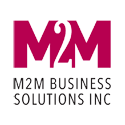To win in the marketplace, you must first win in the workplace- Doug Conant.
The raging talent war of this VUCA world has inspired the corporate landscape to rewrite the age-old business rules from “Customer is King” to “Employee is King.”
Employee is the New King
Taking care of your customers is important, but if you care for your employees, you will never have to worry about taking care of your customers. Your employees will do that.
Unengaged, or worse, disengaged employees do not work at full capacity. As the success of their company is not their success (or so they believe), they are not motivated to dedicate themselves fully to their work.
When your customers don’t find your employees’ work satisfactory, they’ll inevitably start searching for alternatives to fulfil their requirements and expectations. This will ultimately lead to a loss of revenue for the business.
So, the happiness or satisfaction of customers, and eventually profits, significantly depend on the team engagement of an organization.
What is Employee Engagement?
There are many definitions of this. Most of them are great, but I’ll attempt to make it very simple here.
Employee engagement is all about the level of emotional and mental connection the employees have with their work, team, and company. If done correctly, engagement could significantly boost business success, ROI, productivity, individual and organizational performance.

As a workplace approach, employee engagement is creating the right environment for all the employees so that they are committed to the values and goals of the organization, encouraged to contribute towards success, and give their best every day with an improved sense of overall well-being.
What Employee Engagement is Not?

As a business process, employee engagement is still a very new concept for most companies. It also means vastly different things for different sizes of companies. As a result, it can often be confused with other aspects of employee and team productivity. Let’s look at what it’s not.
It’s Not Employee Happiness or Satisfaction: While engaged employees are usually more satisfied and happier, it is not necessary for a “satisfied” or “happy” employee to be engaged as well.
For instance, an employee could be satisfied and happy with the paycheck he/she receives by only doing as little work as possible. This does not mean that the employee is also highly engaged with the job or the company.
It’s not Employee Motivation: Engagement is not 100% about motivation. While I am motivated to exercise and diet, this does not mean that I am going to.
Translate this into a business environment- an employee might be motivated to perform (due to intrinsic or extrinsic factors) but might still not feel engaged, ie, have a mental and emotional connection with the organization, team or work.
It’s Not Employee Experience: There are many leaders who mix the two up. Admittedly, this is the closest you can get, but both are still quite different from each other.
Purely from an HR point of view, employee experience is the big umbrella, and engagement is a significant part that shapes the experience. From an organizational success and productivity point of view, however, it gets interesting. Employee experience becomes the input and better engagement, the output.
So, then the question is, what IS employee engagement.
It’s CARE. When the employee cares about the company as much as the owner does.
Why Employee Engagement?
- Key to Organisational Success: 71% of C-level executives, board members and business leaders believe that employee engagement is important to achieve organizational success.
- It Reduces Abseentism: Employee engagement is known to reduce absenteeism by as much as 41%, according to this study.
- Increases Productivity: According to the same study, it also increases productivity by up to 22%. Not just that, but it also increases the quality of work produced.
- Reduces Hiring and Onboarding Cost: Employee turnover costs companies thousands of dollars. Depending on the level of employee, it could cost a company 3-9 months salary to recruit, onboard and train an employee. Higher employee engagement can reduce employee turnover by as much as 51%.
- Increases Profitability: Highly engaged teams can increase profitability by 21%. With reduced absenteeism, better customer satisfaction and increased productivity, higher profitability is inevitable.
Why Should You as a Leader Focus on Employee Engagement?
According to a recent Gallup Workplace research, only about 36% of the employees of more than 100,000 business units in the US were found to be engaged in the workplace.
About 51% of them are not engaged, and close to 13% are actively disengaged. Employees who are actively disengaged are known to have miserable work experiences, and they also often share their unhappiness with their team members.
Moreover, disengaged employees were also found to be looking for better employment opportunities and won’t mind leaving their current employer for a slightly better offer.
With remote working and hybridity expected to be the new normal in the future, this can be the right time for businesses and leaders to start working towards employee engagement. You can also check out my LinkedIn article on the challenges of a hybrid workplace to start preparing for the future.
Employee Engagement can Unlock Hidden Company Potential

Employee engagement directly impacts the growth of an organization. If the employees feel more connected and engage, it’ll automatically translate into happier customers and improved revenue.
But as employee engagement is still a novel business approach, I understand the struggles of getting it right and finding lasting results. The expertise of a business advisor could play a significant role in the process.
Sign-up for a no-obligation information session to know more about how our training programs can help you design and implement custom employee engagement initiatives.
Also, please share in the comments what are some of the key challenges you face or have seen companies face when it comes to employee engagement.
Best Business Consulting Firms in Toronto, Canada | Business Solutions Consultants in United States
Top Business Consulting Firms in United States, M2M Business Solutions is considered among the Best Business Consulting Firms in Toronto, Canada owing to its quality Business Consulting services, and winning business strategies. Our extensive Consulting experience and dedicated team of Professional Business Solutions Consultants make us well-poised to emerge as the Famous Business Consulting Companies in Canada!


